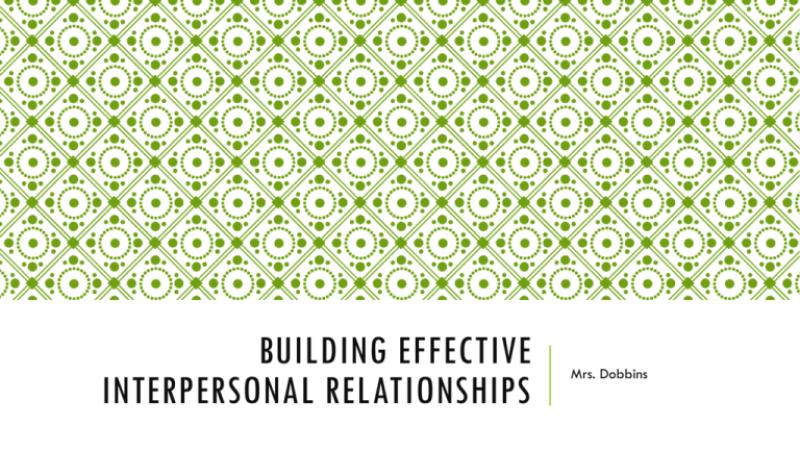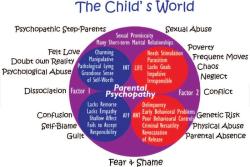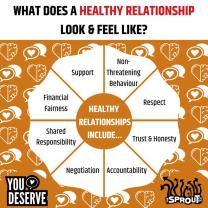How to build interpersonal relationships?
Building strong interpersonal relationships requires intentional effort, effective communication, and a willingness to invest time and energy into connecting with others. Here are strategies to cultivate and build interpersonal relationships:
Active Listening:
- Pay close attention when others are speaking, and show genuine interest in what they have to say.
- Reflect on what you've heard to demonstrate understanding.
Communication Skills:
- Express yourself clearly and effectively.
- Use positive body language, maintain eye contact, and be mindful of your tone.
Empathy:
- Put yourself in others' shoes to understand their feelings and perspectives.
- Validate and acknowledge others' emotions.
Respect:
- Treat others with courtesy, politeness, and consideration.
- Acknowledge and appreciate differences in opinions, values, and backgrounds.
Openness and Honesty:
- Be transparent and honest in your communication.
- Share your thoughts, feelings, and experiences openly.
Build Trust:
- Keep commitments and follow through on promises.
- Be reliable and consistent in your actions.
Positivity:
- Foster a positive and optimistic outlook.
- Focus on strengths and celebrate achievements.
Initiate Interaction:
- Take the initiative to reach out to others.
- Invite people to socialize or engage in activities together.
Show Appreciation:
- Express gratitude for others' contributions or acts of kindness.
- Acknowledge and celebrate others' achievements.
Be Supportive:
- Offer emotional support during challenging times.
- Be there for others in both good and bad times.
Foster Shared Activities:
- Engage in activities or hobbies together.
- Shared experiences help strengthen bonds.
Adaptability:
- Be flexible and adaptable in your interactions.
- Embrace change and be open to new ideas.
Conflict Resolution:
- Address conflicts constructively and respectfully.
- Focus on finding solutions rather than placing blame.
Set Boundaries:
- Clearly communicate your boundaries and respect the boundaries of others.
- Establishing healthy boundaries contributes to mutual respect.
Cultural Sensitivity:
- Be aware and respectful of cultural differences.
- Cultivate an inclusive mindset and celebrate diversity.
Invest Time:
- Building relationships takes time, so invest the necessary time and effort.
- Prioritize meaningful interactions and quality time.
Networking:
- Expand your social circles by networking.
- Attend social events, join clubs, or participate in community activities.
Continuous Learning:
- Be open to learning about others' interests, perspectives, and experiences.
- Cultivate a curious mindset.
Apologize and Forgive:
- Apologize when needed and forgive others for mistakes.
- Holding onto grudges can strain relationships.
Celebrate Milestones:
- Acknowledge and celebrate important milestones in others' lives.
- Show genuine happiness for their achievements.
Remember that building and maintaining interpersonal relationships is an ongoing process that requires effort from all parties involved. Consistency, authenticity, and a genuine interest in others contribute to the development of meaningful and lasting connections.
Building and maintaining strong interpersonal relationships is essential for personal well-being, social support, and overall quality of life. Here are some effective strategies and methods to foster meaningful interpersonal connections:
Active Listening and Empathy: Practice active listening by giving your full attention, showing genuine interest, and understanding the other person's perspective. Empathize with their feelings and experiences, demonstrating that you care about their thoughts and emotions.
Open Communication and Self-Disclosure: Engage in open and honest communication, sharing your thoughts, feelings, and experiences in a genuine and authentic manner. Self-disclosure fosters trust and connection, allowing others to know the real you.
Shared Activities and Interests: Engage in shared activities and pursue common interests with others. This creates opportunities for connection, shared experiences, and a sense of belonging.
Quality Time and Presence: Dedicate quality time to the people you value, making them feel important and prioritized. Be fully present in their company, minimizing distractions and focusing on the connection.
Respect and Consideration: Treat others with respect, valuing their opinions, feelings, and individuality. Consider their perspectives and act with kindness and sensitivity.
Reliability and Support: Be a reliable and supportive friend or partner. Show up when needed, offer assistance during difficult times, and celebrate their successes.
Conflict Resolution and Forgiveness: Address conflicts constructively, approaching disagreements with a calm and understanding attitude. Practice forgiveness, letting go of resentment and moving forward in a positive manner.
Expressing Gratitude and Appreciation: Regularly express gratitude and appreciation for the people in your life. Acknowledge their positive qualities, their contributions, and their presence in your life.
Nurturing and Maintaining Connections: Relationships require ongoing effort and attention. Nurture your connections by staying in touch, checking in regularly, and making time for meaningful interactions.
Personal Growth and Self-Awareness: Strive for personal growth and self-awareness. Be open to learning new things, expanding your perspectives, and understanding your own emotions and motivations.
Remember, building strong interpersonal relationships takes time, effort, and a genuine desire to connect with others. By implementing these strategies and approaches, you can cultivate meaningful connections that enrich your life and bring joy to those around you.









